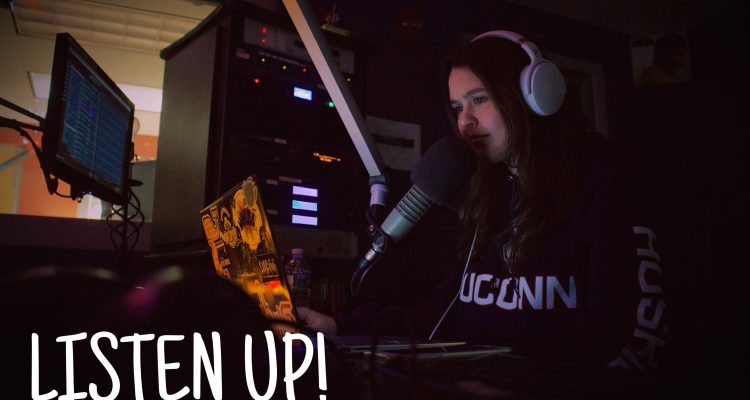I’m going to go out on a limb here and assume you know what a paradox is. In the event that you don’t, I’ve ever so kindly provided the definition down below according to my good friend Uncle Google:
“A situation, person, or thing that combines contradictory features or qualities.”
Note the phrase contradictory features or qualities. That’s the important bit, here. Contradictory; differing; dichotomist; inconsis– ok ok, I’ll stop with the synonyms, I just wanted to make sure you get that paradoxes are a really important aspect of today’s post.
I had the pleasure of being acquainted with Mr. Noam Chomsky, an American linguist and philosopher, among other titles listed on Wikipedia. In 1991, Chomsky published an open media pamphlet series titled, “Media Control: The Spectacular Achievements of Propaganda.” As I mentioned in my previous post, media control is the sociological theory I’ll be exploring in order to analyze the effect it has on the freedom of expression that radio typically promotes.
Chomsky analyzes media and media control mainly under the scope of its political impact and subsequent implications upon society. He highlights two “conceptions” of democracy in society, one of which “the public has the means to participate in some meaningful way in the management of their own affairs and the means of information are open and free” (5).
Essentially, a democracy where the public is directly involved in the government and media is totally open and unrestricted. On the other hand, there’s the version of democracy where “the public must be barred from managing their own affairs and the means of information must be kept narrowly and rigidly controlled” (6). Funnily enough, it’s the second version of democracy that is prevalent in our nation today where the average person really has no say in how the country is run (aside from voting) and the media industry is tightly regulated (shoutout to you, FCC!).
I don’t think there’s too much we can do about the democracy situation, but that’s not the focus of this blog. We care about the media, right? Specifically, radio. Now what is incredibly interesting to me, is the dichotomy that currently exists between free media and regulated media. Ahhh, there it is, that word again, dichotomy! I told you it would play into today’s discussion. This dichotomy in the media is something I like to call the Paradox of— well, I don’t actually have a fancy name for my theory yet, I’m a really amateur sociologist here (if I can even call myself that). Just know that the radio and media industry is in a paradox type limbo, and here’s why.
Media outlets such as radio, tv, social media platforms, and even this blog, allow people to have a voice. To be creative. To think outside the box. To challenge the norms. However, the governing powers and higher-ups in society aren’t really inclined to give people this voice. Chomsky references a dude called Walter Lippmann who apparently was an amateur philosopher interested in the relationship between liberty and democracy. Lippmann came up with the “bewildered herd”—a concept that argues the public is too stupid to be able to understand things and if they try to manage their own affairs, they’ll end up causing trouble (13).
I really like the example Chomsky uses to ratify Lippmann’s logic. He says we have to tame this bewildered herd in the same sense we can’t let a three-year-old run across the street, because “the three-year-old doesn’t know how to handle that freedom” (13). I agree, to an extent, that it’s good to keep every average Joe from putting their two cents into how things are run.
However, I draw the line when the basic freedom of free speech suffers as a result. I’m not cool with the fact that people are confined to being spectators and their opinions marginalized. In fact, it makes me quite upset when the media is used to control the public opinion. And yet, this phenomenon has existed since the beginning of the first civilizations. “[The] bewildered herd basically just have to be distracted. Turn their attention to something else. Keep them out of trouble. Make sure they remain at most spectators of action…” (15). It’s bread and circuses, dear reader, bread and circuses.
But where’s the fun in that? There is none. In my last post, I talked about how [radio] media allows people to imagine and create and even express themselves, if they’re the ones behind the mic. The bread and circuses gimmick is simply a fantasy of power, an illusion. We’re kept distracted, but never truly engaged, because we allegedly need to be kept out of trouble.
And that right there is the Paradox of Free Media, folks—would you look at that, I came up with a name for my little theory! Anyways, media can be amazing when it allows us to express ourselves, push boundaries, and explore new dimensions. On the other hand, governing bodies and influential people often use media as tools of control over society, limiting our freedom of speech and ability to think for ourselves. Ultimately, it boils down to a seemingly one-sided power struggle.
There’s such a complicated relationship between the public and the media, a field that appears to promote free speech and thought. As a society, we constantly dance on the thin line between truth and illusion. We need to exercise care and caution when interacting with different forms of media. Ignorance and blind trust should be replaced with critical and analytical thinking; be the devil’s advocate and learn to question the world around you. Seek out different opinions, and engage in some friendly debate from time to time. It may seem easy, but it takes courage to be the one who digs deeper and questions everything.
We’ll be taking a look at the concept of the audience next time; after all, you’re the people who serve as the driving force behind the media and entertainment industries!


